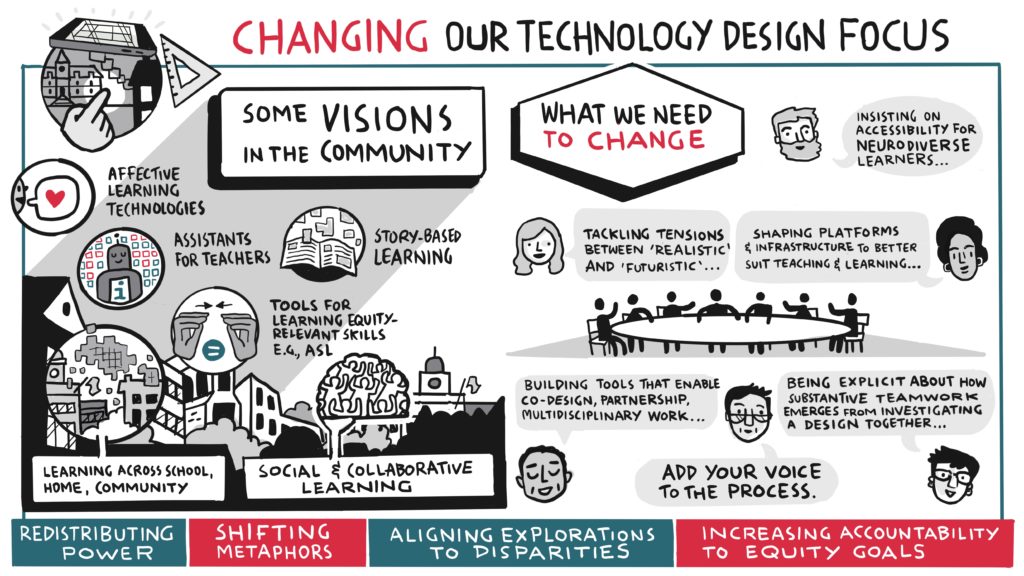
CIRCLS’21 participants recommended rethinking the focus of design-based research. Future design-based research should insist on accessibility, tackle tensions between realistic and futuristic technologies, develop tools that improve the process of co-design, and leverage platforms so that designs might more readily scale. As particular innovations proceed from more exploratory research programs like RETTL to more implementation-oriented research programs, the scope of the design focus will necessarily need to address a more comprehensive set of concerns.

This research community called for centering the voice of partners in choosing the focus of a research-based technology design project, as discussed above. This is fundamental and is elaborated across the key points below.
Insisting on Accessibility
Accessibility guidelines are well established but too many exploratory research projects do not address them. Neurodiversity is important to consider and accessibility needs to be addressed from a project’s conception, and viewed as a necessary component rather than an optional “nice-to-have.”
Realistic Usability and Multilevel Explorations
Researchers worry that too much exploratory research is devoted to expensive or “clunky” gear. Obviously, there is tension here, because technologies that will be commonplace in ten years may be expensive now. The community sees value in a pattern of exploratory research that might look at an overall concept in several different renderings—some which have less fidelity to the vision yet are more usable today and others that have greater fidelity, but are more cumbersome or expensive. Although the expensive version may have more fidelity in one way, what we learn about the concept may be broader if stakeholders can use it more easily and often. So, there could be a benefit to exploring the same concept at different “entry points.”
Exploring With Platforms and Infrastructure
Community members suggested focusing more attention on how innovative explorations could occur within platforms or with infrastructures that are broadly supported in the world, rather than building platforms from scratch within the limited funding available in exploratory research programs.
Next page: Improving Partnerships
